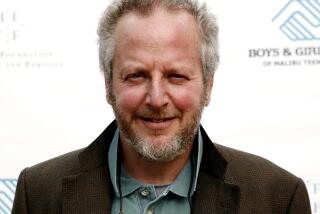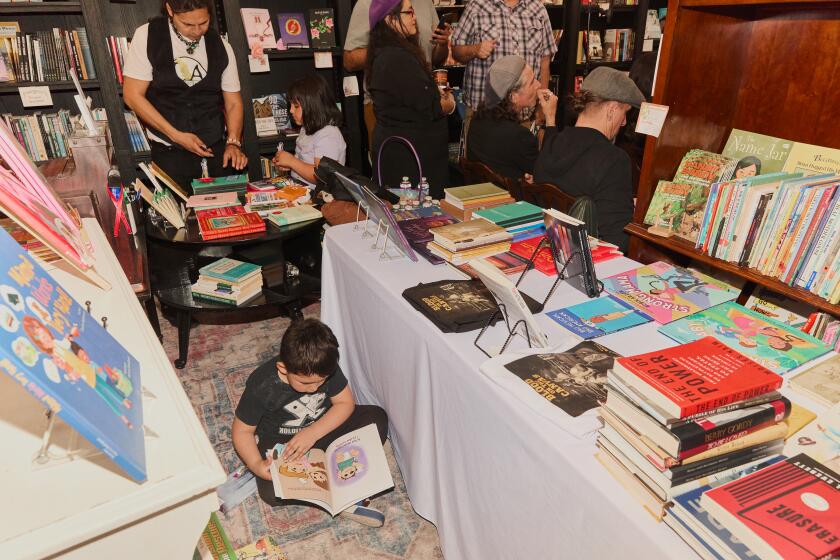Allen Ginsberg: Poet, Legal Scholar, Rock Star
In addition to being the most renowned poet of his generation, a teacher, a pillar of political activism and an intimate friend to seemingly thousands, Allen Ginsberg, who died April 5, was a leading authority on the 1st Amendment.
It was because of his legal expertize that I met him in 1992, as he contemplated whether there was a viable strategy to challenge the Reagan-era “indecency” standard of the Federal Communication Commission. This had inhibited even the cutting-edge progressive Pacifica radio stations from broadcasting Allen’s reading of his seminal poem, “Howl.”
The publication of “Howl” had triggered the arrest of its publisher, Lawrence Ferlinghetti of City Lights Books in 1957. The case came to court in October 1957, just four months after the recently appointed U.S. Supreme Court Justice William J. Brennen Jr. had altered the court’s definition of obscenity in Roth vs. United States. According to Roth, literature with “ideas that had even the slightest social importance” would be protected by the 1st Amendment. Thus, the defense strategy for “Howl”--as described in a book Ginsberg loved, Edward di Grazia’s “Girls Lean Back Everywhere”--was to call numerous witnesses attesting to the literary and social importance of the poem.
The prosecutor, Ralph McCintosh, had made his name prosecuting traditional pornography, as well as Howard Hughes’ film “The Outlaw,” starring Jane Russell. But he was clearly over his head cross examining the principal defense witness, literary critic Mark Schorer:
McCintosh: Do you understand what “angelheaded hipsters burning for the ancient heavenly connection to the starry dynamo in the machinery of night” means?
Schorer: Sir, you can’t translate poetry into prose, that’s why it’s poetry.
Judge Clayton Horn, who tried the case without a jury, found “Howl” not to be obscene.
In 1959, Ginsberg had orchestrated a similar defense in Chicago of the obscenity prosecution of the magazine, Big Table, which included several chapters from William S. Burroughs’ then-unpublished novel “Naked Lunch,” as well as a new work from Jack Kerouac. Judge Julius Hoffman, later to become notorious for his role in the Chicago Eight Trial, found Big Table not to be obscene--settling for generations to come the right of poets and novelists to deal with controversial themes in their written work.
Yet, 35 years after winning the right to publish it, Ginsberg was still fighting the battle for “Howl” in the context of the broadcast medium. He told me of being on a panel with FCC Commissioner James Quello, who was a prominent defender of the “indecency” standard. Ginsberg had showed him a copy of “Howl” and asked Quello whether or not he thought it was a good poem. “This is very good,” he described Quello as saying, “and with a couple of edits, it would be totally appropriate to be on the air.”
Allen told the story with incredulous glee. Edit “Howl”! Didn’t that just sum up the philistinism of a certain kind of Washington bureaucrat.
I asked Ginsberg if he agreed with growing concerns about the periodic trials that seek to create liability for recording artists or filmmakers when crazed fans of the work have committed murder or suicide. It seemed to me that it was paradoxical: Social conservatives normally insist on the notion of absolute personal responsibility for criminals, deriding social policy aimed at addressing “root causes;” but in such cases, they suddenly seem willing to shift responsibility to artists and entertainers--claiming the work affects criminal behavior.
Ginsberg firmly interrupted me. Though he agreed that the notion of legal liability was absurd, he was concerned about how the issue was debated. “Don’t ever use the argument that art does not have an effect on people. I’ve spent many years dedicated to the idea that poetry does affect people.”
Ginsberg didn’t agree with the William J. Bennetts of the world, but he did want speech defended on the basis that more speech is better for society than less.
In 1966, my company, Mercury Records, recorded a CD with Ginsberg. His poem “Ballad of the Skeletons” was set to music performed by Lenny Kaye, Philip Glass and Paul McCartney, among others. Ginsberg was meticulous in supervising the recording, the overdubs and the mixes, sending me innumerable incomplete versions along the way. When he finally delivered the mastered CD, I noticed there were several versions of “Skeletons” on it. “I gave you a shorter version for radio stations that want it,” he explained, “and a ‘clean’ version.” He had overdubbed a line so that it now reads “muck you in the face.”
The artist in Allen reconciled with the civil libertarian in him. While he was fighting the FCC, he still wanted a chance to expose his latest masterpiece as widely as possible. He didn’t get too many chances to be a rock star.
Meanwhile, if the Supreme Court doesn’t overturn the Communications Decency Act, “Howl” won’t be able to be transmitted on the Internet, either.
More to Read
Sign up for our Book Club newsletter
Get the latest news, events and more from the Los Angeles Times Book Club, and help us get L.A. reading and talking.
You may occasionally receive promotional content from the Los Angeles Times.






